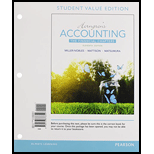
Introduction:
Cash Flow Statements:
- Cash flow statements are an integral part of the financial statements of a company. They reflect the direction and movement of the
cash inflows and outflows during a reporting period. The cash inflows and outflows are segregated into the following activities:
Cash flows from Operating activities – The cash inflows refer to sales and income from operating activities andcash outflows include both cash and non-cash outflows from the operating activities i.e. the day to day activities of the business.
- Cash flows from Investing activities – The cash inflows refer to sales and income from investing activities and cash outflows include cash outflows from the investing activities in the form of purchase of fixed assets and investments.
- Cash flows from Financing activities – The cash inflows refer to income from financing activities such as raising share capital and debt and cash outflows include cash outflows from the financing activities in the form of dividends and interest paid.
There are two methods of preparing cash flow statements:
- Direct Method – It measures the actual cash inflows and cash outflows that are affected during a particular reporting period. The actual cash flows do not include non-cash items and items that are recorded owing to the accrual principle.
- Indirect Method –It measures the cash inflows and cash outflows that are affected during a particular reporting period including the non-cash items and items that are recorded owing to the accrual principle.
• Free Cash flow is a measure of the cash flow available to be used after accounting for changes in planned future activities such as increase in capital expenditures, payment of cash dividends etc.
• Free Cash flow is calculated as the difference between cash flow from operations and the capital expenditures planned. Free Cash flow is an efficient enabler in the analysis of the cash flows of the future periods as it allows for estimation of future cash flow positions after taking into account effect of change of future activities.
Free cash flow for next year
Want to see the full answer?
Check out a sample textbook solution
Chapter 16 Solutions
Horngren's Accounting, The Financial Chapters, Student Value Edition Plus MyLab Accounting with Pearson eText -- Access Card Package (11th Edition)

 AccountingAccountingISBN:9781337272094Author:WARREN, Carl S., Reeve, James M., Duchac, Jonathan E.Publisher:Cengage Learning,
AccountingAccountingISBN:9781337272094Author:WARREN, Carl S., Reeve, James M., Duchac, Jonathan E.Publisher:Cengage Learning, Accounting Information SystemsAccountingISBN:9781337619202Author:Hall, James A.Publisher:Cengage Learning,
Accounting Information SystemsAccountingISBN:9781337619202Author:Hall, James A.Publisher:Cengage Learning, Horngren's Cost Accounting: A Managerial Emphasis...AccountingISBN:9780134475585Author:Srikant M. Datar, Madhav V. RajanPublisher:PEARSON
Horngren's Cost Accounting: A Managerial Emphasis...AccountingISBN:9780134475585Author:Srikant M. Datar, Madhav V. RajanPublisher:PEARSON Intermediate AccountingAccountingISBN:9781259722660Author:J. David Spiceland, Mark W. Nelson, Wayne M ThomasPublisher:McGraw-Hill Education
Intermediate AccountingAccountingISBN:9781259722660Author:J. David Spiceland, Mark W. Nelson, Wayne M ThomasPublisher:McGraw-Hill Education Financial and Managerial AccountingAccountingISBN:9781259726705Author:John J Wild, Ken W. Shaw, Barbara Chiappetta Fundamental Accounting PrinciplesPublisher:McGraw-Hill Education
Financial and Managerial AccountingAccountingISBN:9781259726705Author:John J Wild, Ken W. Shaw, Barbara Chiappetta Fundamental Accounting PrinciplesPublisher:McGraw-Hill Education





